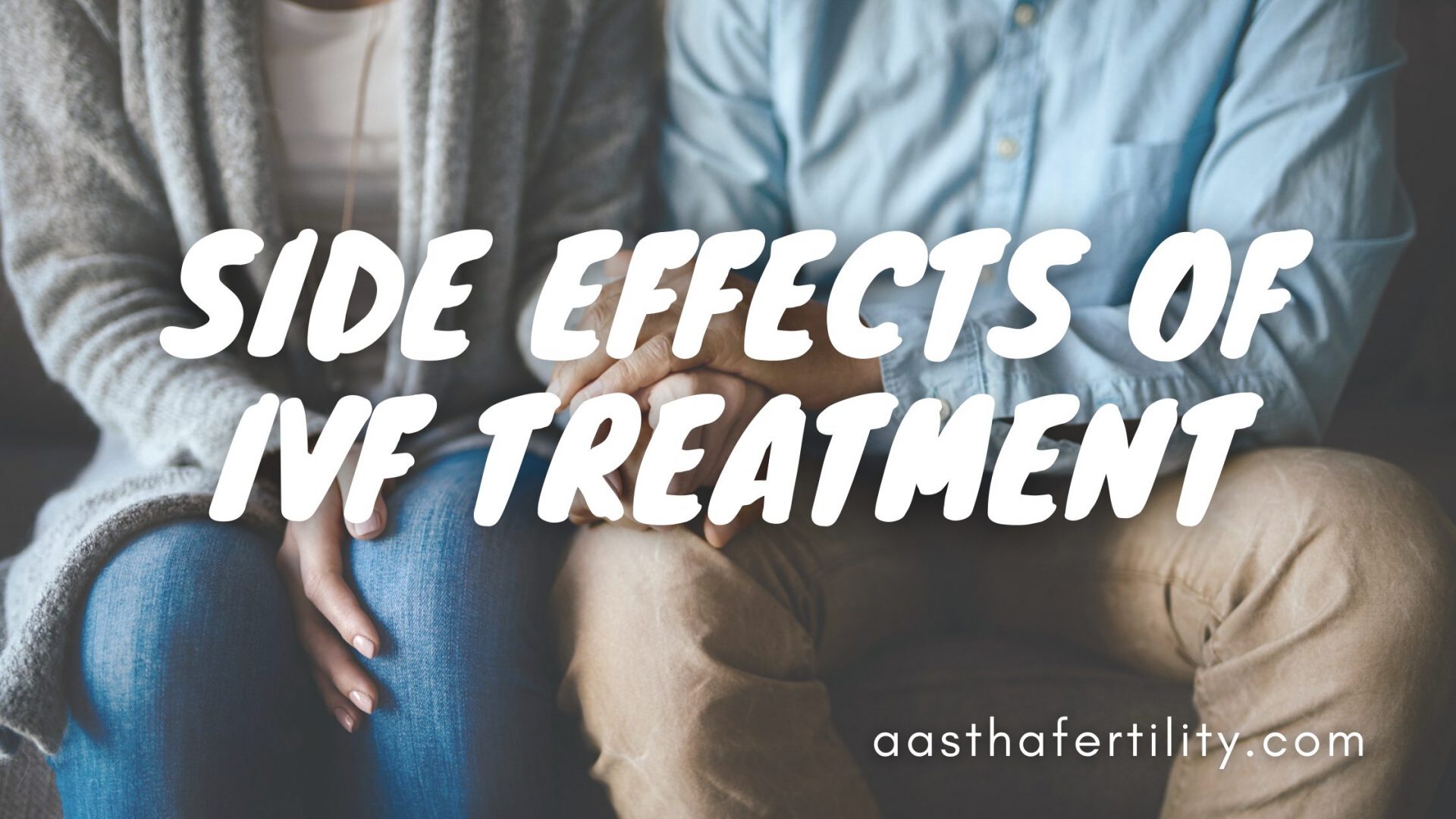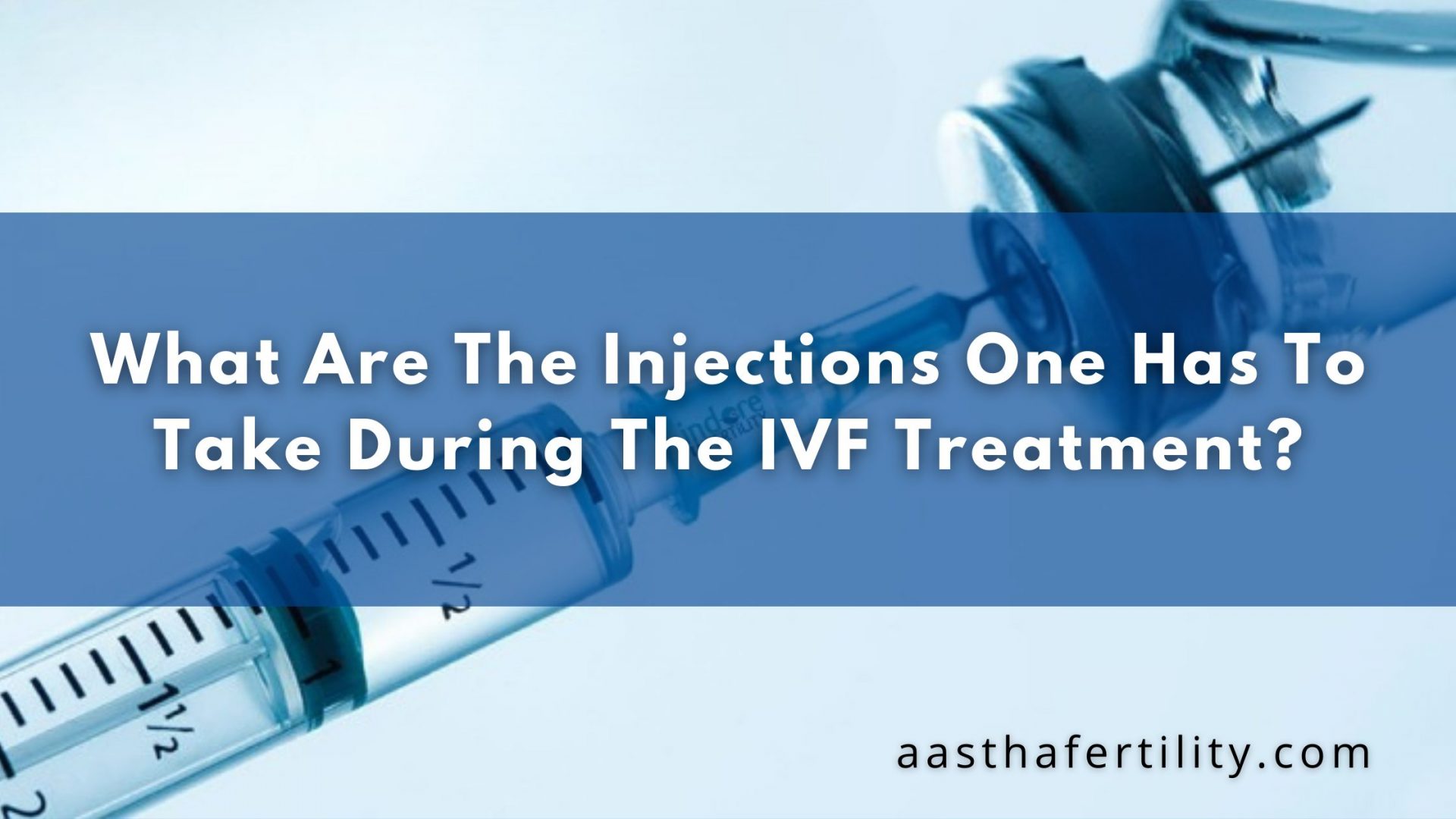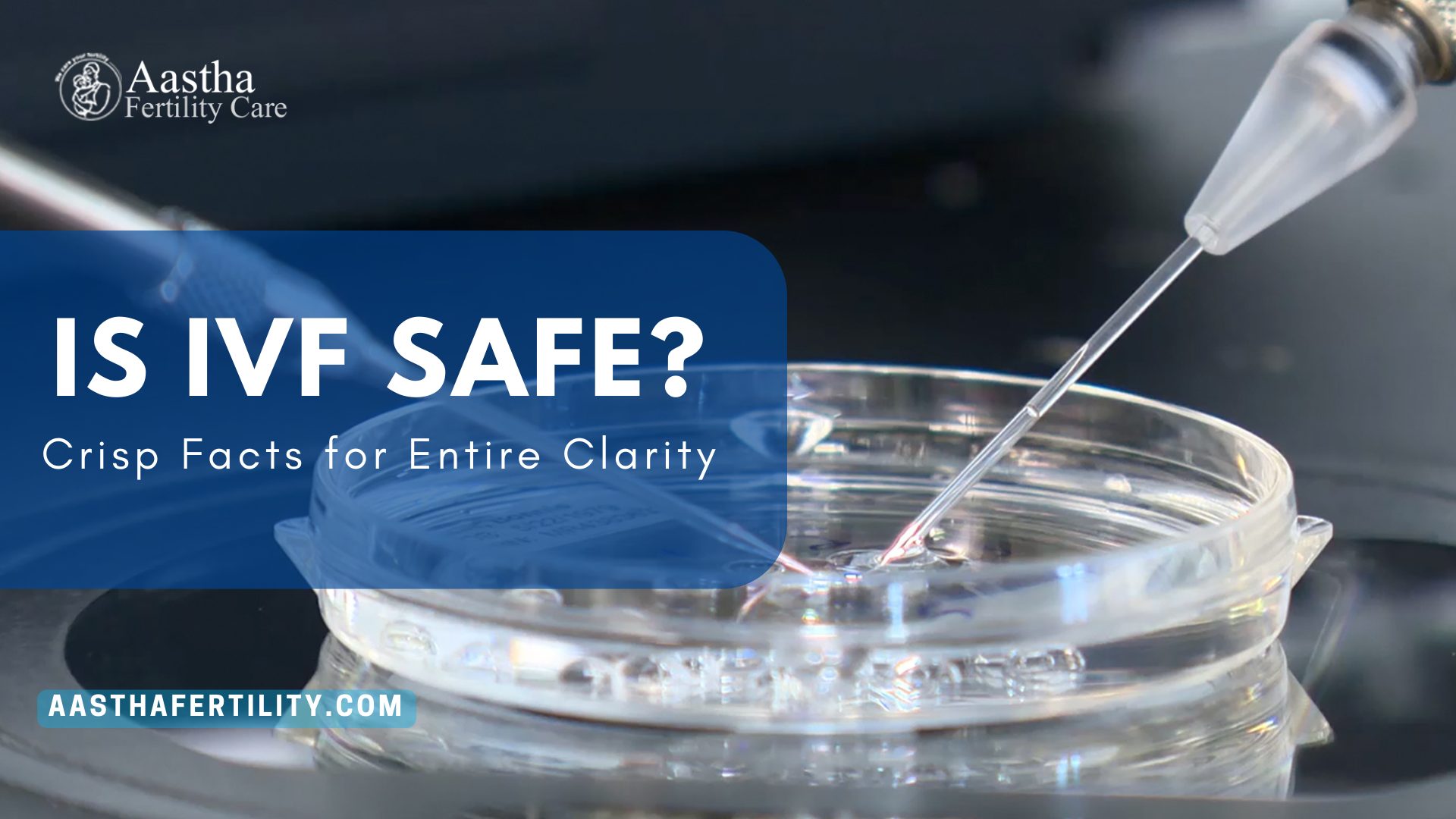Table of Contents
ToggleInfertility is a global health issue, affecting every one out of seven couples trying to have a baby worldwide. Since 1978, when the first IVF baby was successfully born, in-vitro fertilisation has become a scientific breakthrough that has brought hope into the lives of many people unable to conceive due to infertility issues. Many patients considering IVF always wonder if their IVF treatment will be successful. Success rate of IVF depend on several factors, but more importantly, they are an indicator of the competency level of a clinic.
IVF has a great success rate at world-class clinics such as Aastha Fertility Care. Our facilities and technologies, along with our experienced team, ensure that your entire IVF procedure is a great success.
IVF Success Rate in India
According to WebMD, the global average IVF success rate is about 50% in young women. India has one of the best IVF success rates at 70%, followed by the US at 50%, China at 45%, Korea at 40%, and the UK at 38%.
It is globally recognised and accepted that the success rate of IVF in India by Aastha Fertility Care is very high, which makes it one of the best places to consider for IVF. About several factors like age, quality of the sperm, egg and embryo, duration of infertility, and cause of infertility, the success rate of IVF in India ranges from 65% to 70%. Women younger than 35 had higher success rates and greater chances of success.
IVF Attempts and Their Success Rate
Multiple IVF attempts can come with emotional distress and a hefty price tag. This is why most couples want to know how many IVF cycles they would need to take before they become pregnant.
Worldwide, the average success rate of women starting their first cycle of IVF is 35% and 50-75% by their sixth or eighth cycle. This important information has made fertility experts advise couples not to lose hope or be quick to change their fertility clinic if their first cycle fails but to make up their minds for multiple cycles. If you are considering IVF or have already had two or more failed IVF procedures, the following data may be great to note:
- IVF success rate in the first attempt is 35%
- 2nd IVF attempt success rate is 51%
- IVF success rate for 3rd Attempt is 59%
- IVF success rate for 4th attempt is 66%
- IVF success rate for the 8th attempt is 90%
IVF Success Rate by Age in India
India has a very high success rate for IVF compared to other nations, supported by affordable IVF Treatment costs, cutting-edge technology, highly skilled and experienced medical professionals, and top-notch infrastructure. This is why India is the best choice for many patients. Over the years, India’s IVF treatment landscape has advanced across several cities.
The age of the woman receiving treatment and other factors, including the cause of infertility, affects the likelihood that an IVF life cycle will be successful. Generally, Younger women have a higher success rate with IVF.
Therefore, experts discourage IVF for women over 42 because the likelihood of a successful pregnancy is lower. Here’s what IVF success rates look like by age:
- IVF success rate for a 23-year-old is 43%
- IVF success rate for those under 30 is 35%
- IVF success rate for those under 35 is 32%
- IVF success rate for those over 40 is 11%
- IVF success rate for those over 43 is 5%
These numbers are based on the number of embryos transferred for women who used their eggs and their partner’s sperm.
Embryo Transfer and IVF Success Rate
Your entire IVF procedure’s success depends solely on the embryo transfer process. This process is the final step of your IVF treatment and involves the doctor placing the externally fertilised embryos in your uterus using a catheter.
The likelihood of getting pregnant with an IVF is higher if the embryo has been successfully implanted in your uterus. Doctors may transfer multiple embryos in the hopes that at least one may grow and attach to the lining of your uterus.
Number of Embryos Can Affect The Ivf Success Rate
Embryo Transfer also plays a major role in determining the overall IVF success rates. In most IVF cases, the doctor only transfers a single embryo. However, in some cases, the doctor may transfer 2 or more embryos. Generally, doctors inform the patient before deciding how many embryos there are in the event of multiple pregnancies.
Some important information to bear in mind about a number of the embryo(s) and IVF include:
- IVF success rates with 1 or 2 embryos transferred are between 32.4% – 47.1%
- Without boosting the overall pregnancy rate, the transfer of three healthy embryos causes a high proportion of triplet pregnancies.
- 8 follicles count is a good number and increases the likelihood of success for ovarian stimulation and IVF.
- With 9 eggs retrieved, the optimal pregnancy and success rate of IVF increases to 34.8%
- 9 follicles count is a good number and increases the likelihood of ovarian stimulation and IVF success.
The Implantation Day Can Affect Ivf Success Rate
Implantation is when the embryo implants and attaches itself to the uterus lining, signifying the beginning of pregnancy. Bear in mind that the day of embryo or blastocyst transfer can affect success rates of IVF; here’s how:
- 3-day embryos are at the cleavage stage and contain approximately 4-8 cells.
- 4-day embryos consist of over 12 cells.
- 5-day blastocyst specialists could advise day 5 transfers to improve the odds of implantation since they are larger and more mature, containing between 70 and 100 cells.
How Does Personal Health Impact IVF Success Rate?
The success of an IVF process varies from couple to couple for a variety of factors, including the personal health of the patients, which can impact the success rate of IVF. Here’s a list of the health issues that lower IVF success rates:
Problems with female reproductive health
Some reproductive health problems can cause female infertility, and these health problems have a high impact on the success of IVF procedures. The following reproductive health problems can impact the success rates of IVF in women:
- Polycystic ovary syndrome (PCOS)
- Endometriosis
- Granulocyte colony-stimulating factor (G-CSF)
- Low Anti Mullerian Hormone (AMH)
- Dilation and curettage (D&C)
- Tubal ligation
- Ectopic pregnancy
- Low ovarian reserve
- Adenomyosis
- Blocked tubes
Some infertility factors in males can be also significantly lower and affect the IVF success rate-
- Myomectomy
- Low sperm count and motility
- Vasectomy
How To Increase The Success Rate Of IVF?
The likely outcome of an IVF procedure is hard to predict. With the right information, your success rate may be elevated with a little work and consistent monitoring.
Keeping a nutritious diet by abstaining from caffeine, alcohol, and smoking while undergoing treatment are a few strategies to increase your chances of conceiving with IVF.
Another significant factor that can increase your IVF success is your choice of the fertility clinic. Aastha Fertility Clinic is one of India’s most reputable IVF (in vitro fertilisation) facilities, with cutting-edge technology, and high-quality medical facilities that aid in boosting your IVF treatment’s success rates.
IVF Success Rate With Genetic Testing:
Genetic testing of embryos is advanced technology available to patients who choose in vitro fertilisation. Genetic testing helps to evaluate the genetic makeup of your embryos. Only embryos that pass this screening and are genetically sound and healthy are chosen to be implanted into the uterus for a prospective pregnancy. This process can increase the success rate of your IVF procedure.
IVF Success Rate With PGS Testing:
Preimplantation genetic screening (PGS) is strongly advised for older women with inferior egg quality since chromosomal abnormalities cause most embryo implantation failures. This will reduce the risk of miscarriage and enhance the embryo’s likelihood of implanting. IVF calculator for success rates
IVF success calculator allows you to check your chances. This tool predicts your chances by utilising certain factors that affect fertility like:
- Female’s age, e.g. 37.
- IVF treatment in the past (if any).
- Past pregnancy history (if any).
- Duration of attempt.
- Cause of infertility, e.g. endometriosis.
- Type of IVF program, e.g. with own eggs.
Reasons For Low IVF Success Rate
When patients do not achieve clinical pregnancy or live birth, there are some reasons why their IVF might have been unsuccessful. The most frequent reason is the restricted growth of embryos before implantation.
Other factors that might have caused this are uterine receptivity, female age, implantation issues, patient’s lifestyle, chromosomal abnormalities, and embryo transfer mechanics, but most unsuccessful IVF cycles can be due to embryo quality.
Many embryos cannot implant after transfer to the uterus because they are defective in some way. Even embryos that appear healthy in the lab may have defects that prevent them from developing. In nearly all cases, it’s not that your uterus isn’t healthy enough to carry a baby, but rather it’s the embryo that fails to implant because it is too sickly to develop.
Let’s Compare What Is Best For You!
Even though the number of infertility cases is increasing daily, you shouldn’t be concerned. You can get the greatest alternatives or solutions from various proven treatments at Aastha Fertility Care, which guarantees a healthy pregnancy.
IVF Success Rates of Fresh VS Frozen Embryos
Since studies have shown that success rates with fresh and frozen embryos are virtually comparable, a “fresh” embryo isn’t necessarily desirable, but it can still be useful in some situations. When there is no suspicion of a chromosomal problem, for example, or when an older patient has embryos that may have a greater chance of developing in pregnancy without waiting for genetic tests, physicians may advise fresh embryos (sometimes embryos used in genetic testing have to be frozen).
Additionally, your doctor might advise FET to help you conceive if you have particular medical issues, relevant situations, or lifestyle considerations. A frozen embryo transfer (FET) implants a patient’s previously cryopreserved embryo from a standard IVF cycle-or, in rare situations, an embryo from a donor into the uterus.
IVF Success Rates VS Natural Conception
More pregnancies result from IVF than from natural conception. This is primarily because it can avoid many problems that naturally occur during conception and can recognise and even facilitate some invisible phases in fertilisation.
If you are having trouble conceiving naturally or want to know more about infertility, schedule your online consultation with the best team of doctors at Aastha Fertility Center. They will give you the greatest responses to your private inquiries while advising the most effective course of action.





Leave a comment